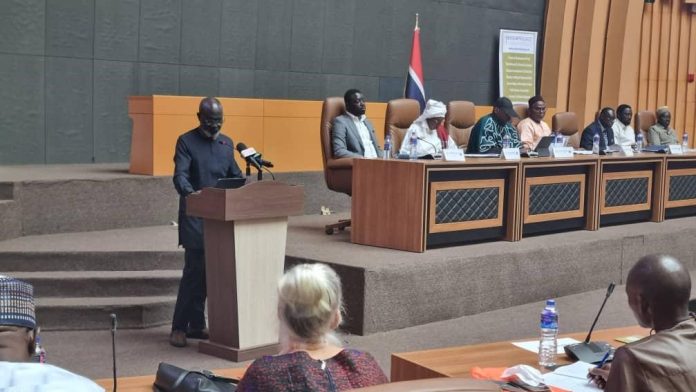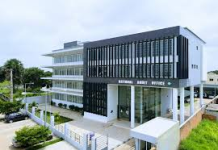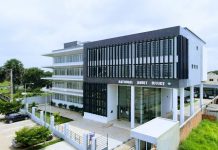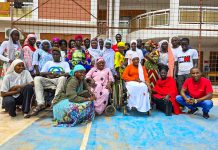By Ndey Sowe
The Gambia received $775.6 million in remittances in 2024, marking an increase of $28.8 million compared to the previous year, according to Momodou Njie, Senior Adviser to the Governor of the Central Bank of The Gambia.
Njie disclosed this on Saturday, January 11, 2025, at the Eighth Stake in the Nation Forum (SNF) held at the Sir Dawda Kairaba Jawara International Conference Center in Bijilo. This year’s forum was themed “Diaspora, Jobs, and Financing for Development.”
The SNF, organized by GK Partners in collaboration with the Office of the President, has become a key platform for fostering dialogue and partnerships between the Gambian Diaspora, government ministries, departments, and agencies (MDAs), as well as a range of non-state actors.
Njie attributed the growth in remittances to improved monitoring mechanisms, increased use of formal channels by the Diaspora, and the adoption of technology for sending remittances. He also highlighted the role of Fintech companies in reducing the cost of transferring and receiving funds, which has contributed significantly to the increased inflows.
“The primary sources of these remittances include the United States of America, Europe, and other African countries where our Diaspora is well-established,” Njie said.
Njie outlined how these funds are primarily utilized within the country.
“36.9% of total remittances are spent on household consumption, while 51.8% go towards private construction. These expenditures support domestic demand and remain critical drivers of economic growth in The Gambia from 2021 to 2024,” he stated.
He added that 7.5% of the remittances were saved, providing much-needed liquidity to the domestic financial system for investment and capital accommodation. The remaining 3.8% of remittances were spent on health, education, and other family-related expenses.
While acknowledging the benefits of remittances, Njie stressed the need to enhance their impact.
“Firstly, we need to create an enabling environment that encourages our Diaspora to invest in larger and more sustainable projects. This includes improving the ease of doing business, offering attractive investment incentives, and ensuring political and economic stability,” he emphasized.
He also called for partnerships with financial institutions to lower the cost of remittance transfers, aligning with the global Sustainable Development Goal (SDG) 10 target.
“High transaction fees can limit the amount of money received by families, reducing its overall economic impact. By leveraging technology and fostering competition among service providers, we can make remittance transfers more affordable and efficient,” he said.
Njie further stressed the importance of strengthening data collection mechanisms to better understand remittance inflows and their usage.
Njie underscored the critical role of the Gambian Diaspora in the country’s socio-economic fabric.
“Funds sent by Gambians living abroad contribute significantly to household incomes, education, healthcare, and the overall economic stability of our country,” he said, adding that remittances served as a financial cushion during economic downturns, especially during the global COVID-19 pandemic.
“The Diaspora’s support to their families and communities back home was remarkable, mitigating the impact of the pandemic on the Gambian economy,” he noted.
Njie explained that remittances now surpass traditional sources of foreign currency, including tourism and exports, and contribute approximately 31.5% of The Gambia’s Gross Domestic Product (GDP).
“While we have made significant progress in enhancing the inflow and utilization of remittances, there remain substantial opportunities to further leverage these funds for personal and national development,” he added.
Njie reiterated the Central Bank’s commitment to initiatives such as Diaspora engagement and reforms in remittance regulations.
“By implementing strategic policies and fostering a conducive environment, we can ensure that remittances continue to play a pivotal role in the socio-economic advancement of The Gambia,” he assured.
He urged all stakeholders, including the government, financial institutions, and the Diaspora community, to collaborate in harnessing the full potential of remittances for the nation’s development.




















